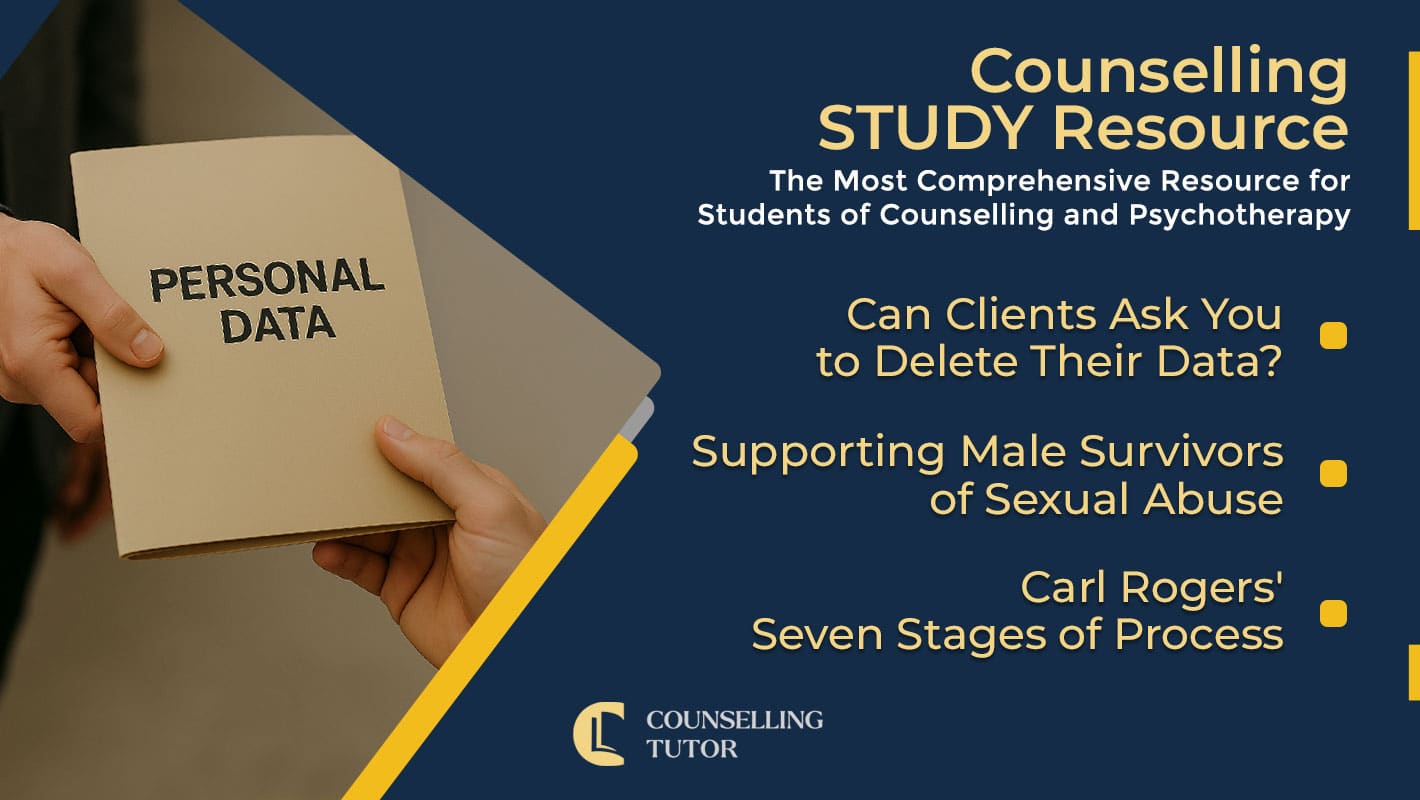See Counselling Skills Used in Real Sessions by Qualified Therapist
Real Sessions – Real Presentations – Real Skills
Gain the competence and confidence to use counselling techniques effectively!

In Episode 340 of the Counselling Tutor Podcast, your hosts Rory Lees-Oakes and Ken Kelly take us through this week’s three topics:
Firstly, in ‘Ethical, Sustainable Practice’, we look at the question: Can clients ask you to delete their data? – covering legal, ethical, and practical considerations.
Then in ‘Practice Matters’, Rory speaks with Jeremy Sachs about supporting male survivors of sexual abuse, with a focus on the intersectional challenges they face and practical considerations for therapists.
And finally, in ‘Student Services’, Rory and Ken explain and simplify Carl Rogers’ Seven Stages of Process, highlighting how this core theory maps client growth in therapy.
In this section, Rory and Ken address a challenging but important question: Can clients ask you to delete their data?
Key points discussed include:

Real Sessions – Real Presentations – Real Skills
Gain the competence and confidence to use counselling techniques effectively!
In ‘Practice Matters’, Rory speaks with Jeremy Sachs, therapist and author of the upcoming book Masculinity Reconnected, about male sexual abuse and its often-overlooked challenges.
Key points discussed include:

On-demand access to a rich lecture library covering theory, skills, and professional development for counselling students—Mapped to the UK awarding body criteria
“The Student Library has been BRILLIANT, I can’t recommend it enough!
It has been a lifeline in helping me prepare for practice and my first clients. If you’re considering it, go-for-it, it’s absolutely worth it!”
Kelly – Graduated and now in practice.
In ‘Student Services’, Rory and Ken simplify Carl Rogers’ Seven Stages of Process, a key person-centred theory describing how clients grow through therapy.
Key points include:
Can Clients Ask You to Delete Their Data

Get on-demand Certified CPD that is implementable in your practice
